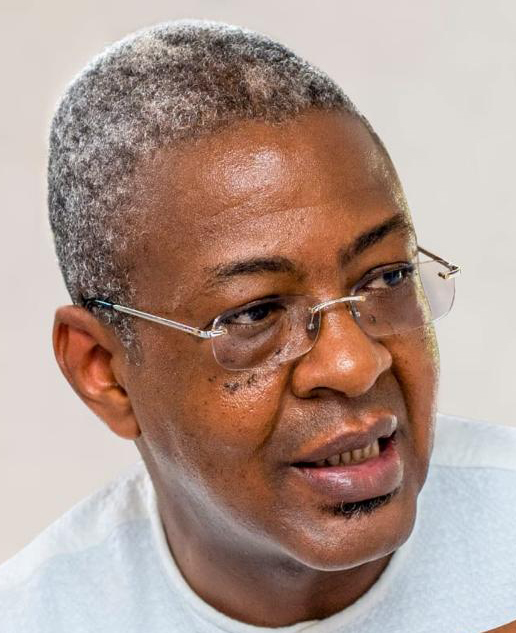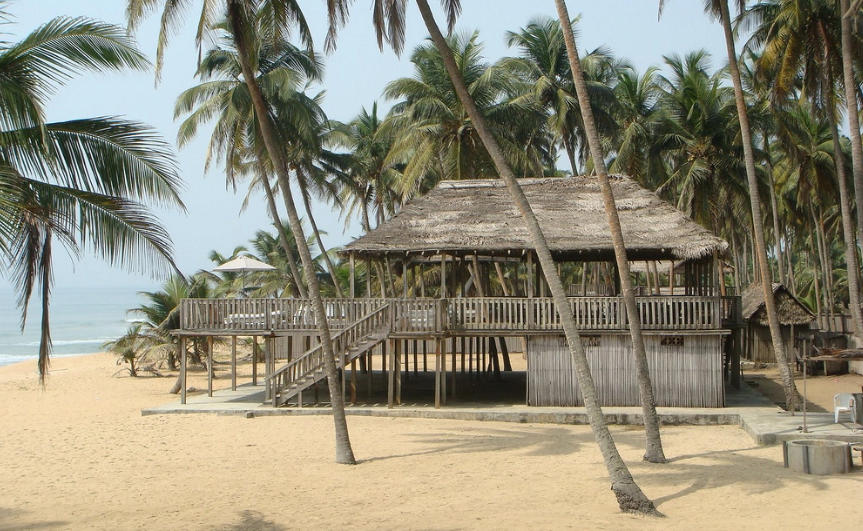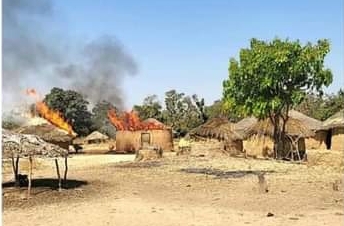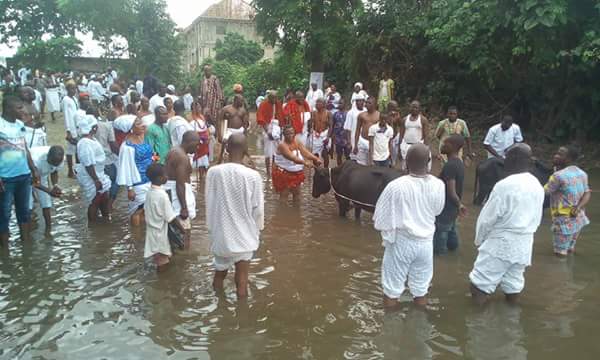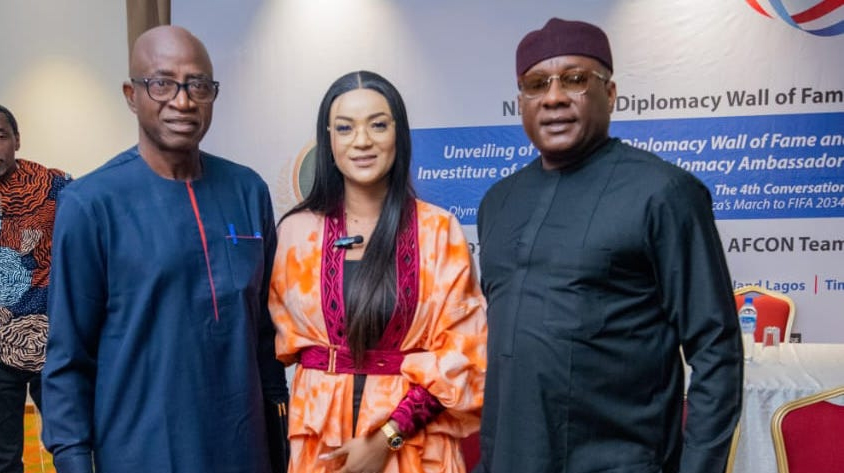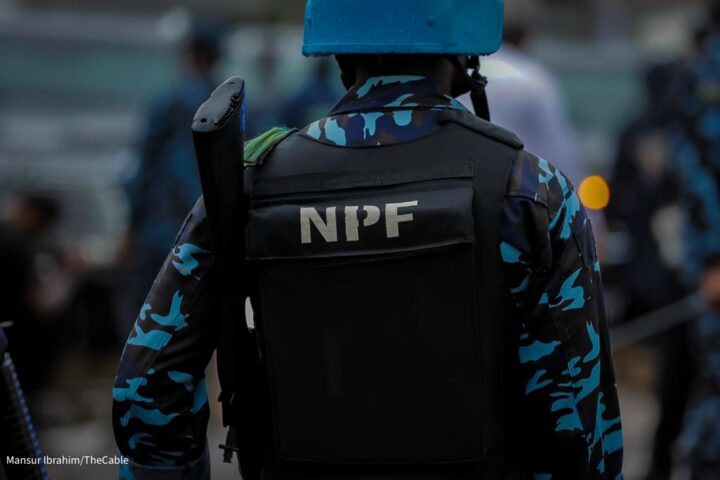“Asake! Kaycee! Tems!! Davido!!… I wake up to “Basquiat” in London, then thereafter get drawn into the matchless magic of Kaycee’s “Ojapiano” as I step into the airport in Miami. Imagine, Tems’ unique melody serenades me as she takes me “Higher” on the car stereo in Jo’burg. What about Davido? He just seems to be both available and “Unavailable” everywhere!!!”.
That’s how a friend – who happens to be a globetrotter on the job – confronted me recently, before going on to ask: “Burna Boy has been filling massive concert stadiums from New York to many cities in Europe; same with Big Wiz, Davido, and Olamide’s YBNL boys… But why are many of these big events not happening in the origin of Arobeats, Naija? A considerable number of people ought to be coming down here – to Lagos, Port Harcourt or Abuja – to experience Afrobeats at its roots. What’s happening? Why are you guys not making this happen? I want to come home to watch these mega shows, with an audience from across the globe!”
In that encounter with my friend, he had skinned a very critical issue of policy to its core – the need to create the strategic and physical infrastructure that will harness Nigeria’s unique cultural and artistic assets, expressed through diverse channels such as fashion, food, music, creative crafts and film, and make them a strong part of its reality, whether in terms of its appeal as a destination of choice for tourists or even in its potential to trigger an economic renaissance. I couldn’t agree more that while efforts are continually being made, there is a need for a greater resource base for action, alongside a more structured response to, and coordination of Nigeria’s tourism assets – particularly as a programme of national economic regeneration.
Tourism has the potential of broadening Nigeria’s huge soft power, which has an upward trajectory as witnessed in the global reach of its artistic and cultural products, and identity. Today, as mentioned earlier, we are witnesses to the routine spectacle of how pervasive our culture and its productions have become on the international stage, from Afrobeats and related musical forms to Nollywood and other creative endeavours. This has seen a Burna Boy or Big Wiz or Davido regularly fill some of the largest and upscale venues in North America, Europe, India and beyond.
Advertisement
Or is it the immense crossover appeal of Tiwa Savage, Flavour Nabania, Rema, P-Square, Yemi Alade, Patoranking or Olamide and his YBNL associates? Some of these artists have taken Nigerian street culture into the affluent spaces of Western high culture, and beyond. Consequently, our fashion and culinary industries have become the darlings of many across the African continent and the wider world. More so, increased religious tourism in Nigeria, involving visits to highly reputed places of worship and sacred locations, is a testament to the huge and deepening appeal of Nigeria to the outside world.
Stimulating a massive economic field
As such, the case for a broader platform of action to anchor a more coordinated policy and institutional response – in terms of a tourism ministry – becomes more pertinent, if not urgent, when we consider how tourism is capable of accelerating Nigeria’s economic fortunes, while also opening newer economic frontiers. The vast possibilities of the sector can be gleaned from estimates that put the entire spectrum of the country’s tourism value chain as constituting as much as 30% of the GDP and 20% of the total number of jobs.
Advertisement
Before the outset of the COVID-19 pandemic in 2019, the hospitality and events sub-sector of tourism was noted to have had a cumulative revenue of about N1.2 trillion annually, with the travel and related industries accounting for about four million direct jobs across some 10,000 MSMEs.
In addition, as a related sector, the creative and culture industries have a very significant pull on inbound tourism in Nigeria, of which film-making is projected as drawing in a yearly revenue of about N140 billion, involving more than 250,000 businesses that create over 500,000 direct and related jobs.
The movie industry, locally described as Nollywood, is now one of the most sophisticated in the world, valued at close to $7 billion in 2021, and producing over 2,500 titles annually. In close kinship is the music industry, which is regarded as the second best-performing entertainment and media consumer market worldwide, and generates close to N300 billion annually from the activities of some 5,000 businesses.
The related advertising, radio and television industry is noted as yielding turnovers in excess of N500 billion per year from more than 10,000 businesses, engaging more than 500,000 people directly. While the writing, printing and publishing industry has witnessed annual revenues of about N1 trillion from 3,000 businesses and 15,000 active practitioners. For comedy, dance and the performing arts, this sub-sector earned about N17 billion in 2018, due to the efforts of over 6,000 companies and practitioners.
Advertisement
Destination marketing: Beyond propaganda
One of the reasons that tourism in Nigeria does not seem to be making as much impact is due to its narrow confinement as a limited department of government when it can become its own policy-making engine room that coordinates a “whole-of-government” approach, in which all levels of government are made to share a vision of the direction and goals of tourism policy-making and implementation.
This is a federal cabinet role that would create a vital link between the central and lower levels of government despite differing mandates and levels of autonomy. It is a role that serves as a policy nexus between government, industry and civil society.
Rather than its present limited possibilities, tourism should be a driver of growth that is not only inclusive but sustainable and an enabler of national development opportunities. As such, not much good is done to its capabilities when tourism is placed under the federal ministry of information, whose essential function pertains to public communications and the formulation of government propaganda.
Advertisement
Destination marketing and government propaganda are not the same hence, tourism needs to be a standalone ministry of government with the authority and resources to design and implement its own goals and objectives. In terms of contiguous and interrelated concerns, tourism, art and culture belong to an ever-intersecting and enlarging continuum having similar missions that should naturally co-habit, as they reinforce each other. They serve the ends of developing industries and the economy, hence they are an overlapping growth sector.
Tourism is essentially about economic development; it is a complex mix requiring great understanding and resources for policy-making at the various crosscutting levels, which would stimulate the development of the country’s attractions, hospitality and entertainment sectors, with direct impacts on aviation, local transportation, etc.
Advertisement
A newer ministry of tourism is one that understands the vast potentials of the sector and how these can be harnessed for national development. It is one that operates in the understanding of the crucial nature of domestic tourism, which is six times larger than international tourism and accounts for more than 70% of tourism markets. Hence the necessity for the greater development of inbound tourism. Also, it sees the re-making of domestic tourism as the first step towards growing a sustainable tourism and hospitality industry across the country.
Also, the ministry is one whose interventions offer major prospects for the advancement of our rural communities, where a lot of our tourist sites are located. In Nigeria, with an estimated population of over 200 million people, 222 million active internet subscriptions and a teledensity of almost 116%, we have a readymade and vast domestic market for tourism.
Advertisement
As an engine room for driving economic growth, the projected ministry of tourism has its job cut out for it to include: delivering on the Tourism Policy 2023–2050 by creating a National Tourism Development Master Plan for the measurable and coordinated growth of the sector. This is in line with the National Development Plan 2021–2025 that aligns with Nigeria Agenda 2050, which is the government’s long-term development aspirations.
Equally, there is the necessity of strengthening institutional and human capacity development across the sector by improving the range of skills required in providing quality services and experiences within the industry. This will entail partnering with stakeholders and educational organisations to enhance the capacity of personnel and practitioners, thereby leading to the development of specialised skills and pathways to new careers in the tourism, hospitality and services sectors.
Advertisement
Furthermore, as a significant dimension of this, there is the need to establish a Tourism Satellite Account (TSA)/Tourism Information Management System that would capture tourism-related data for coordinated nationwide planning and development.
Importantly, the ministry will be charged with mapping the agenda for the creation of a functional Tourism Development Fund to drive the improvement of tourist sites, assets and marketing, while reviewing the fiscal frameworks affecting the growth of the industry across all tiers of government.
More so, it will design policies that leverage the digital reach of Big Tech in Nigeria, for online visibility and mass awareness around the industry, as a way of promoting the best of Nigeria, locally and internationally.
The mandate of a new federal tourism ministry would necessitate financial engineering by creating private sector entry points to managing and enhancing the value of disused federal, state and local government physical assets across the country, which could be repurposed for destination and experiential benefits to tourists.
In addition, with the mandate of the ministry being the growth of the business of tourism, it would enable the creation of business incubators to drive community-based tourism (CBT), whilst establishing enterprise development centres for women and youth in tourism enterprises to produce and export products in an inclusive manner etc.
From the foregoing, it is quite apparent that what Nigeria needs is a growth structure to market the widening range of its potential as a destination of choice for many across the world, which is nothing short of a full-fledged ministry of tourism, rather than a delimited appendage under a platform for propaganda.
Coker, the Baba Eto of Yorubaland and Director General of the Nigerian Tourism Development Authority, is the chief marketer of the Nigerian destination
Views expressed by contributors are strictly personal and not of TheCable.
Add a comment
